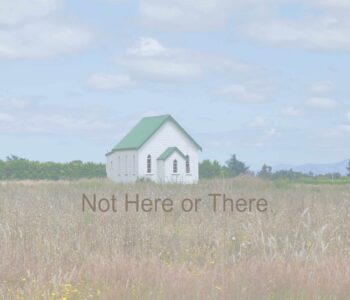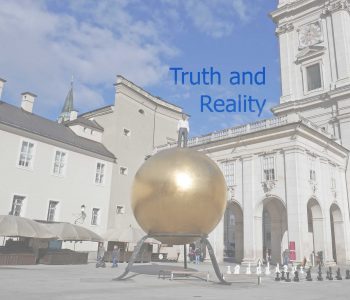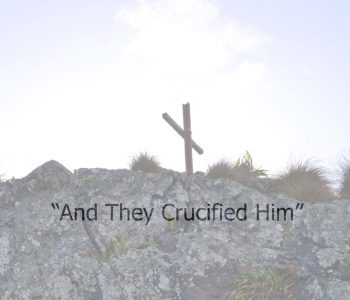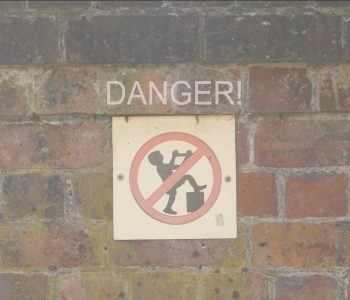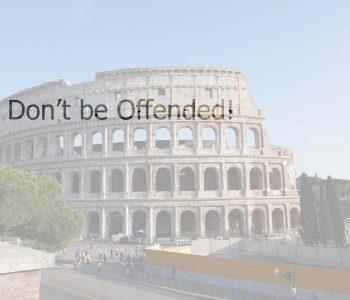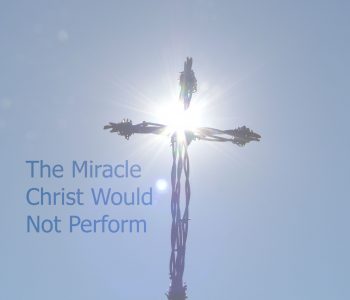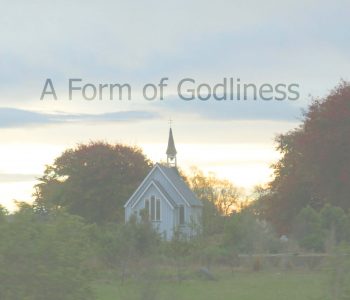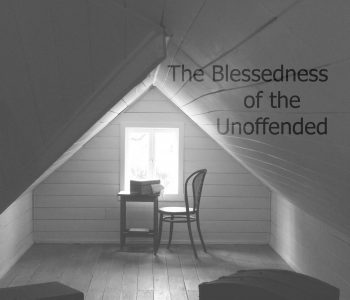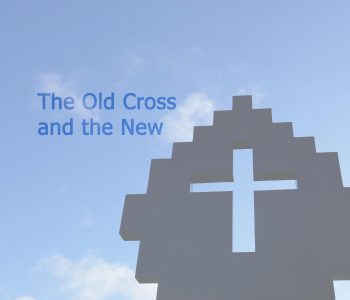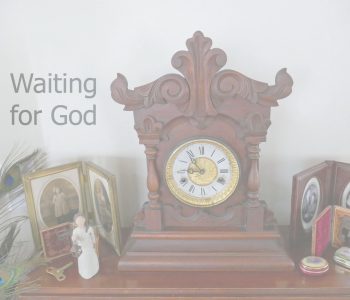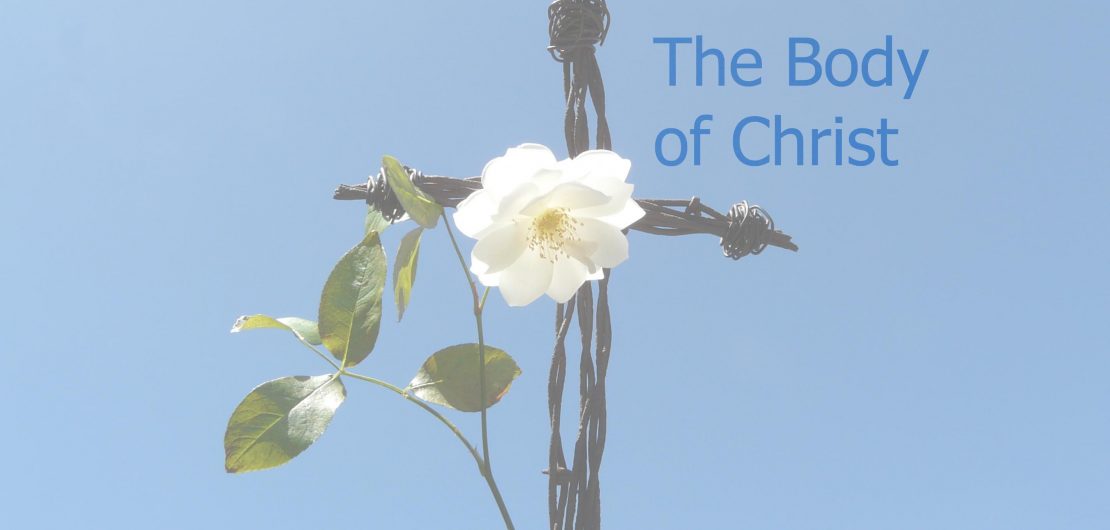 Other Authors
Other Authors
The Body of Christ
“I urge you, brothers, in view of God’s mercy, to offer your bodies as living sacrifices, holy and pleasing to God—this is your spiritual act of worship. Do not conform any longer to the pattern of this world, but be transformed by the renewing of your mind. Then you will be able to test and approve what God’s will is—his good, pleasing and perfect will. For by the grace given me I say to every one of you: Do not think of yourself more highly than you ought, but rather think of yourself with sober judgment, in accordance with the measure of faith God has given you. Just as each of us has one body with many members, and these members do not all have the same function, so in Christ we who are many form one body, and each member belongs to all the others.” Romans 12:1-5.
Before actually coming to the twelfth chapter of Romans, let us remind ourselves of the first eight chapters of that letter. I think we all know that chapters nine to eleven are illustrative or parenthetic; they could be put into brackets, making the twelfth chapter immediately follow upon the eighth. If we remember that these chapters are only a kind of parenthesis, and go on from chapter 8 straight to 12, we find a direct connection.
The first eight chapters of Romans deal with two phases of the Christian life. We have the first four chapters and say ten or eleven verses of the fifth chapter as one section; and say from the twelfth verse of the fifth chapter to the end of the eighth as another. In these two sections the Apostle is trying to lead Christians to see how they were brought into God. This is followed by the exhortation to the consecration and presenting of the body to do the will of God, as we find it at the beginning of chapter 12; and then the Body of Christ is taken up. What does it mean?
This is something in the very heart and counsel of God, and the Christ of God was anointed to bring it about. It is called a ‘mystery’, a secret of God, which was hid from ages and only made known in this age (Rom. 16:25,26). So we have to look to find the difference between our conception of salvation and the Divine conception of salvation; our thought about the Cross and God’s thought about the Cross; our thought about the Holy Spirit and God’s thought about the Holy Spirit; our thought about spiritual experiences, and God’s thought about spiritual experiences.
We believe that the Cross is the central and most important work of God. Praise the Lord, that is true! But we must remember that the Cross is a means to an end; the Cross is not an end in itself. The Divine means is the Cross, but the Divine end is the Body. If you know the Cross in the way in which God means it to be known, you will inevitably find yourself in the Body. When the Cross has done something quite specific in your life, you will simply find yourself in the Body. It cannot be otherwise. If you are not there, it is quite sure that the Cross has not done its work, or at least has not completed its work. What does it mean?
Now, personal holiness, as stressed and sought by many believers, is really precious. Victory in living is really precious. Salvation is really precious. Praise the Lord for salvation! Praise the Lord for forgiveness of sins, for justification before Him, for deliverance from the power of sin. But remember that God did not set Himself to save us, and to give us spiritual experiences like deliverance and victory in life, personal holiness, and so on, just so that we could be hundreds and thousands and myriads of individual Christians, all separate units dotted over this earth for God. That is not what God is after. It may be that the children of Abraham are as the sand on the seashore, but they are not Christians! The Lord never meant that Christians should be single units.
I do not know whether you have seen it or not. It is very easy to talk. I could talk once. I am almost ashamed to confess that for years I thought I knew what is the doctrine of the Body and even tried to apply the doctrine, without seeing the thing, the reality. Reading a guide about London could never take the place of a visit to London. Knowing a book on cookery could never take the place of being in a kitchen. Knowing the doctrine of the Body of Christ can never take the place of seeing it.
The whole trouble today is this. We think of Christians in terms of so many persons, individuals. We think of salvation as an individual thing; we think of holiness in terms of individuals; we think of victory and deliverance in terms of individuals. We are quite happy, as Christian workers, if our flock are going on with the Lord, reading their Bibles, knowing how to pray, living upright and righteous lives, knowing something of deliverance from the power of sin. But that is not the Body. One day something else comes along, and that day is for you a most blessed day – a terrific day. The Lord opens your eyes to see that salvation is in terms of the Body. Having personal holiness is in terms of the Body, having the power of the Spirit is in terms of the Body, having an experience of the Cross is in terms of the Body. You see that the Divine thought is one Man – not a host of small men. It is one Man: the Lord Jesus Himself and His people making up one Man before God. The whole thought of God is centred in the Christ, and we are in Him. It is not only a question of the Head, but of the Body. Praise the Lord, individual sinners are saved. You begin as an individual, but you must end as a member in the Body. That is the Divine thought. God is working toward that, and He will take nothing less than that. The Cross is for that – for that corporate Body, that corporate Christ; for that new Man comprising all who are in the Lord. That is what God is after. We become part of Christ, we become partakers of Christ.
You know I come from China. I have to preach in villages, meeting simple saints, and I have the habit of using simple illustrations. I was once in a simple meeting of believers in a village. I tried to tell them something about the oneness of the Body, that what God is after is the one Body. I found it was very difficult for them to understand. If the whole thing as to new birth is beyond Nicodemus, the question of one Body is altogether beyond any Chinaman! They did not know what it was. ‘We are not one, we are individuals. How can be one?’ I prayed much about it. ‘Lord, you must give me something to show these people how they are one.’
One Lord’s Day morning we were breaking bread. I said, ‘Brothers, before we go on breaking bread, I want you to look carefully at this bread.’ They did not know what I meant, but they looked quite carefully. After the bread was broken, I turned to 1 Corinthians, chapter 10. We came to verse 17: “We, who are many, are one loaf”. Then I said: ‘Are we one loaf? That loaf is one – at least it was one; but is it one now? It is still one, only that one is scattered in different ones. If you could put it all together, it would still be one, for it comes from that one loaf. You cannot say it is two loaves. You can break it into a thousand parts, but still it is one loaf. You cannot deny the fact of one loaf because it was one. It is impossible to make this bread to be in fact one, because it is material. But, please remember, as regards the part of the Lord Jesus that is in you, that part has in a sense never been parted, it has never been broken. That is the basis on which you are all one. It is because you are partakers of the one Lord. Every one is partaking of that one Lord; and that Lord can never be broken. He is still in the Spirit today. You can break the bread but you cannot break the Lord. Therefore you are one.’ Praise the Lord, light dawned upon many of them.
God is not satisfied that we should simply be individual Christians. When you believe the Lord and partake of Him, it means that something has happened. You have been made a member of the one Body, which God is trying to build up. He is not satisfied with anything individual.
We come now to the practical side. God has first to give us the revelation, so that we see what He is after. But what am I after? Do I seek spiritual experiences – so-called – for myself? Do I seek to make converts for my society, for my denomination? Do I try to make converts for the sake of their being saved from hell, so that they can enjoy Heaven? Or have I seen the vision of the heavenly thing, the heavenly Man, and am I working toward that? Oh, it is a different thing. Everything changes – even the question of deliverance from sin, of sanctification, of victory. Everything takes on a different viewpoint. I become a part of the whole.
It is not just a matter of the doctrine of the Body. Even in Rome, you will find the Vatican is teaching that. They believe in one church, because they say the Body is one; but they have their own head. That is the trouble. They have not seen it. You cannot just practise it as a principle – you cannot simply try to take it on. You have to see it. But when once it is seen, then it makes a mighty difference in everything.
The Practical Side
Now, as to the practical side. What constitutes me a member of the Body? If the Lord gives me a revelation concerning the Body, what will be the effect on me? Is it simply that I have seen something which I have never seen before, that I have the knowledge of certain truths which I never had before? – or is that revelation going to be revolutionary? Will that revelation be treated by me as a teaching, as a doctrine? – or will it become something really subjective in me, producing some real change in me? Let me assure you that, when you have seen it, it is going to be a revolution. Something is bound to happen.
What constitutes me a member of the Body? It is not something I can do, it is not something I can experience. The thing that constitutes me a member of the Body of Christ is Christ in me. That entitles me to be, and that actually makes me, a member of the Body. If you do not mind getting down to material illustrations, remember again that loaf of bread. It is not anything of you, it is not some part of you, as a man, which is a member of the Body of Christ. It is, in figure, that piece of bread in you that constitutes you a member of the Body. The Body of Christ is Christ. Paul did not say anything wrong grammatically or spiritually when he said: “For as the body is one, and has many members, and all the members of the body, being many, are one body; so also is the Christ” (1 Cor. 12:12). I think some of us would like to correct him. Grammatically, or logically, it is wrong. He ought to have said, ‘so also is the Christ and the Church’. He only says, “Members… body… so also is the Christ.” So the Head is the Christ and the Body is the Christ. Both are the Christ – the Head and the Body.
So the Body is the Christ. Everything that comes from Christ constitutes that Body. Then anything that does not come from Christ can never get into the Body, and must be ruled out. It is not a question of ‘plus’, it is a question of ‘minus’. That is all the difficulty. It is not a question of what you must be, or must experience, in order to make you a member. No, you are a member, but because you are one, therefore many things have to go. If you see the spiritual constitution of that Body, the heavenliness of that Body, the divineness of that Body, you will see that nothing from you can be attached to it. Anything that is not Christ can ever be in the Body.
The Place of the Cross
That is where the Cross comes in; that is the reason why we emphasize the Cross. The Cross is the practical outworking, and the principle of the Cross is the only Divine means of ruling out anything that is of ourselves – anything that can never stay in the Body. So we find the Lord dealing with us in many things. I do not mean to say sins; I think that would be too low a level. I hope we have, in a sense, got through that. But the point is that we can never bring into the Body the things of ourselves – our temperament, our make-up, for instance. You will find that God will touch you there.
Some of us have very keen brains. We think that, by the keenness of our brain, we can have a better mastery of the Word of God, and that so we can be better ministers. But no. You will find that what you have is only dead knowledge, whereas some old woman, maybe, sitting at the back of the meeting, without much of worldly education, knows something of the Lord. You may be pastor or minister, but you find, when standing before her, that there is something more of Christ in that old lady than there is in you. You find that what you have got is altogether outside of the Body.
May the Lord save us from ministering simply because we have a keen brain! How many of us need salvation from our head – salvation with a helmet! We need it. Your ability, your natural power, has nothing to do with the Body; it has to go out. God wants us to see that the strength of nature, the backbone of the strength of our own nature, must be broken. It has nothing to do with the Body. When you see that, spontaneously you will see that it cannot go on: that thing has no place there, it has to go out.
I would like to ask you to go through Ephesians once more, asking the Lord so show it to you. ‘Lord, what is Thy thought concerning this age?’ Do you think you will be able to find anything other than the Body? You will find that that is the thing God is building today. So whatever is of me must go. The Cross points me straight on to the Body, and the Cross keeps the Body cleansed from anything that is natural, anything that is from Adam. Praise the Lord, nothing that is of me has a part in Him. How good it is to see that I am out altogether! We have nothing to be proud of. If we are proud, we have got to be humbled. Nothing that is in us or of us has any place there. We may think much of ourselves; we may be self-confident, self-conceited, assuming and presuming a great deal; but remember, nothing of us has any place there. The Cross has to work. It is very costly, because it is going to touch the very spring of your life. It may touch something you are holding on to very dearly, and then you find it has to go. That is the Body.
No ‘Free-lancing’
And then you find that the whole question of your movement as an individual member, just by yourself, has to cease. There cannot be ‘freelancing’ in the Body. The Body will not allow it. If I move my finger, the muscle of my hand cannot refuse to move, it has to follow. If I move my arm, my finger cannot stay where it is, or take an individual course. The whole body has to respond to the movement of the head. I have to come to a place where I see I am an integral part of the Body. I cannot move as by myself. It is a question of the Body. You will find that every movement has to take its shape on the ground of the Body. Individual things have to go; you have to wait for others; you have to move with others. You have to go on with God and with your brethren.
That settles the question of all other headships. The question of other headships in the Body of Christ is doing damage to the Body. It is upsetting the Lordship of Jesus. It is the Anointed One being put off the Throne and someone else put on it. It is Saul as over against David.
Saul Versus David
What Saul stands for is simply this – an organized thing, a system of things, among the people of God, as set over against the Anointed One of God. You have two enemies of David. On the one hand, you have Goliath, and the Philistines under him – the enemy coming from outside. On the other hand, you have Saul – the one coming from within. It may be true that Saul has been engaged in fighting Goliath, but please remember that both are keeping David from the throne. The characteristic of Saul is that he stands head and shoulders above all the Israelites. He is a man of exceptional standing; he represents the human brain, human notions, human ideas, as over against the Divine; what men think to be good, to be right, as over against God. That is Saul. That is keeping the Anointed One from the Throne.
But the day came when David, with a sling, sent a stone into the head of Goliath. He did not send a stone into Saul, but from the day when Goliath’s head was hit the head of Saul was hit, to all intents and purposes. The power of Saul waned. The reign of Saul failed on the very day when Goliath was killed. The stone which hit Goliath dealt a death blow to the head of Saul. There is no need for us to make a direct hit against the present system of things. We are not dealing with flesh and blood; but if, by the mercy of God, a death blow could be dealt to our enemy, the unseen one, the spiritual one, the outside one, we should find that, when he has been dealt with, Saul’s reign is already numbered. All other headships have to go, all other kings have to go. The Throne must be given to David. That is what God is doing today.
What I have in my heart is just this. If you really know the Cross, it will lead you into the Body. One thing puzzles me when I meet Christians. So many profess to know the Lord, so many profess to have given up everything for the Lord, so many profess to know what is the deeper meaning of the Cross, but nothing happens. They are still where they were – nothing happens. They profess to believe in the Body, they profess that all are one in Christ. They stress that the old man has to go, the man after nature has to go; nothing of that can be left, can be kept: but nothing happens. You never find the outworking of the thing.
It is not talking. May the Lord save us if we are only talking. The Lord has to give us something spiritually, so that we really see it. Then we shall see that all we have been going through, all the Lord’s dealings with us, are with a view to the Body. He is taking pains to eliminate all that is of us, and make us functioning members of the Body. May He lead us to see clearly what He is after, and to see that nothing that is of us can have any part in His Body.
Published in “A Witness and A Testimony” magazine, January 1958.


